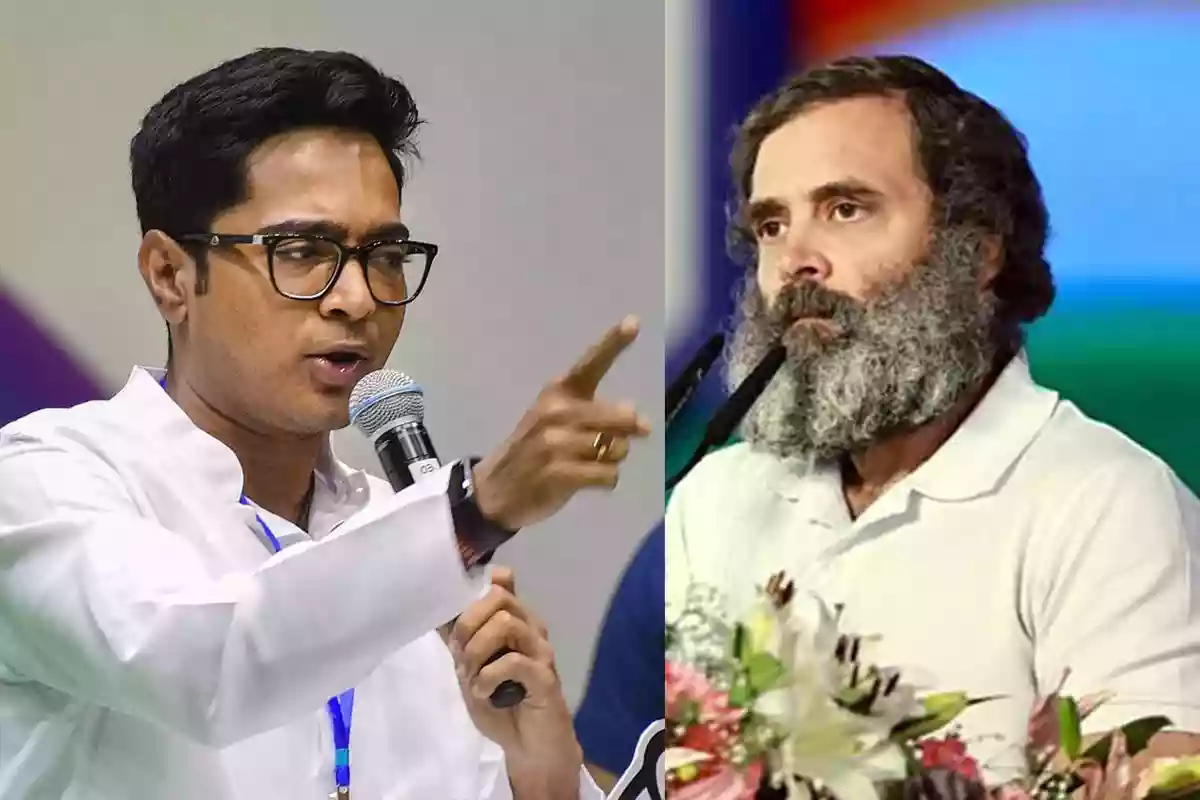.gif)
.gif)

A significant meeting took place in Delhi between Rahul Gandhi and Abhishek Banerjee, which is being viewed as pivotal from both a national and political perspective. The Trinamool National General Secretary, Abhishek Banerjee, directly visited Rahul Gandhi's Delhi residence on Wednesday, engaging in discussions for about an hour. This meeting could potentially have implications not only for West Bengal's political dynamics but also for the larger national political landscape.
This interaction comes on the eve of the Coalition India meeting in Mumbai, drawing attention nationwide. Abhishek Banerjee's direct engagement with Rahul Gandhi has sparked speculation about a potential alleviation of tensions between the Trinamool Congress and the Congress party in West Bengal. In a previous instance, during a meeting in Bengaluru, the two leaders had a brief encounter near the venue. However, this time, the conversation extended to an hour as Abhishek Banerjee provided updates to Sonia Gandhi and Rahul Gandhi on the prevailing situation in the state.
Sources suggest that discussions encompassed the issue of Adhir Ranjan Choudhary, who recently faced a suspension from the Lok Sabha. Adhir Choudhary's renewed aggressive stance towards the Trinamool Congress was reportedly a focal point of the meeting. The significance of this meeting stems from Rahul Gandhi's commitment to addressing Adhir Choudhary's stance, following their previous discussion on the matter. Adhir Choudhary's fluctuating stance on the Trinamool Congress has caught the attention of both Banerjee and Gandhi, leading to a deeper engagement on the issue.
Both Abhishek Banerjee and Rahul Gandhi are also participating in the Mumbai meeting, presenting another platform for potential discussions on Adhir Choudhary's behavior. There is speculation that Rahul Gandhi might even directly call Adhir Choudhary from Mumbai. The Delhi meeting's broader implications, considering its timing and the leaders involved, have piqued national interest, particularly regarding its potential influence on the Trinamool-Congress relationship and the national political landscape.